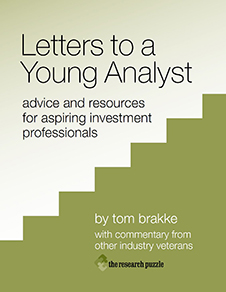
- Friday, September 5th, 2008
- the hedge fund dilemma
-
It has often been said that hedge funds are not an asset class or an industry, but rather a compensation scheme. Today we find ourselves contemplating the possibility that we have reached a point where significant structural changes for that scheme may be on the horizon.
It’s a funny thing. We’ve had the “lost decade” of equity returns, and interest in alternative investing has never been higher. It is not uncommon to see institutions and individuals adopting asset allocation guidelines that embrace hedge funds and other alternatives to an extraordinary degree. Yet, the inherent weakness at the heart of the hedge fund promise has not been remedied, presenting a dilemma for thoughtful investors.
The incentive fee structure has proven itself to be out of whack with behavioral realities. Just like the bonus plans for traders at most investment banks, it is a wonderful mechanism for delivering large amounts of money to the players of the game, but it falls woefully short of matching the incentives to the real needs of most investors. I buy the fact that incentive structures should exist; I just don’t think that industry practice today represents the right approach.
While there have been some innovations in fee structure worth noting, there has been no real traction with any, and a “the best charge the most and charge it today” mentality still rules.
At the same time, I was struck by Roger Ehrenberg’s recent piece,Information Arbitrage | Ehrenberg’s summary of his interests: “I have a passion for Wall Street, the markets, deals and the Internet.” He writes well about all of them. which begins:
“Hedge funds (HFs), private equity firms (PEs) and venture capital funds (VCs) are facing historic challenges, many of which are of their own doing. It is easy to point to difficult market conditions and conclude that their problems are largely due to the environment. This would be a convenient, but less than truthful, explanation. The fact is that the top tier of HFs, PEs and VCs are no longer style pure; they are all institutional asset management firms, motivated by ever-increasing assets under management and the sticky management fees that come along with it. And structural issues brought about by fees schemes and scale have been the source of other bad behaviors.”
So, the “little guys” tend to crash and burn because the incentive structure induces them into bad behaviors and the “big guys” have gotten so big that they care more about the two than the twenty (or whatever larger numbers they are able to charge). It’s just not working out for investors as advertised.
I agree with Ehrenberg that the challenges of this time will result in new ways of doing things. Let’s hope that includes experimentation with incentive structures that actually deliver the sharing of interests that we have been promised.
